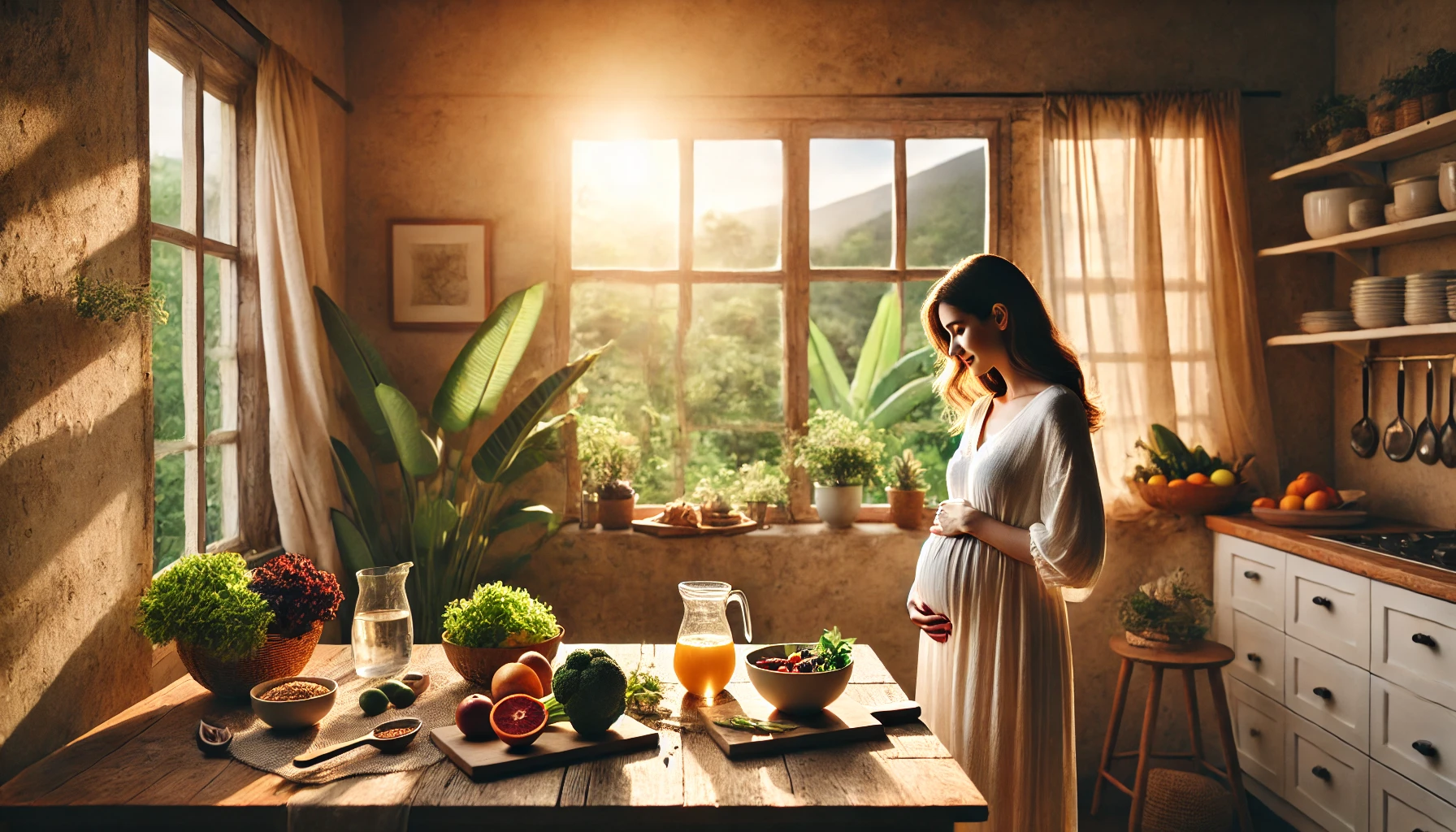Nourishing Your Pregnancy: The Best Foods for You and Your Baby

Pregnancy is an exciting and transformative time in a woman’s life, and proper nutrition is essential for both the mother and the growing baby. The right foods can provide vital nutrients, support healthy fetal development, and keep you energized throughout each stage. But what should you eat to ensure you and your baby are getting the best possible nourishment? Here’s a guide to some of the top foods to eat during pregnancy.
1. Leafy Greens
Rich in folate, iron, and fiber, leafy greens like spinach, kale, and broccoli are pregnancy powerhouses. Folate (a B vitamin) is crucial for preventing neural tube defects in the baby, while iron helps combat pregnancy-related anemia.
How to Include: Add them to salads, smoothies, or stir-fries. Steaming helps retain most nutrients, making it an easy way to prepare.
2. Eggs
Eggs are a great source of high-quality protein, essential fats, and choline, a vital nutrient for fetal brain development. They’re also versatile and easy to prepare.
How to Include: Try scrambled eggs for breakfast, boiled eggs as a snack, or even add them to salads or sandwiches.
3. Dairy Products
Dairy products like milk, yogurt, and cheese are excellent sources of calcium and vitamin D, both crucial for the development of the baby’s bones and teeth. They also provide a healthy amount of protein.
How to Include: Enjoy Greek yogurt with fruits and nuts, or add cheese to your salads and sandwiches. Opt for fortified milk for added vitamins.
4. Whole Grains
Whole grains such as oatmeal, brown rice, and quinoa are rich in fiber, B vitamins, and magnesium. They help maintain energy levels and improve digestion, which can be particularly helpful in preventing pregnancy-related constipation.
How to Include: Swap refined grains with whole grains in your meals. Start your day with a bowl of oatmeal or use quinoa as a base for salads and stir-fries.
5. Lean Protein
Lean meats like chicken, turkey, and lean beef are excellent sources of iron and protein, which are essential for the baby’s growth and the mother’s health. Iron is particularly important during pregnancy to prevent fatigue and support increased blood volume.
How to Include: Grill or bake lean cuts of meat, and add them to your meals. Pair with vitamin C-rich foods like tomatoes or citrus fruits to enhance iron absorption.
6. Fatty Fish
Fish like salmon, sardines, and trout are rich in omega-3 fatty acids, which support brain development in the baby. These fatty acids are also known to improve the mother’s mood and heart health.
How to Include: Aim to have two servings of fatty fish per week. Grill or bake salmon and serve with a side of veggies, or add sardines to a fresh salad.
7. Legumes
Beans, lentils, chickpeas, and peas are packed with protein, iron, folate, and fiber, making them ideal for pregnancy. They help in maintaining healthy digestion and promoting the baby’s growth.
How to Include: Add legumes to soups, stews, and salads. Hummus, made from chickpeas, is a delicious and healthy dip for vegetables or whole-grain crackers.
8. Nuts and Seeds
Almonds, walnuts, chia seeds, and flaxseeds are rich in healthy fats, fiber, and important vitamins and minerals such as magnesium and vitamin E. They are also great for keeping you feeling full and energized.
How to Include: Sprinkle chia or flaxseeds on yogurt or oatmeal, and keep nuts handy for a quick snack.
9. Avocados
Avocados are nutrient-dense, providing healthy fats, folate, potassium, and fiber. These are especially helpful for supporting fetal brain development and reducing leg cramps in the mother.
How to Include: Add avocado slices to salads or sandwiches, or blend them into smoothies for a creamy texture.
10. Berries and Citrus Fruits
Berries like blueberries, strawberries, and raspberries are loaded with antioxidants and fiber, while citrus fruits like oranges and grapefruits provide a healthy dose of vitamin C. These fruits help in boosting the immune system and supporting the baby’s skin development.
How to Include: Add berries to smoothies, oatmeal, or yogurt. Sip on freshly squeezed orange juice for an extra vitamin C boost.
Foods to Avoid During Pregnancy
While it’s important to include a wide range of healthy foods, there are also certain foods that should be avoided:
Raw or undercooked meats (to prevent infections like listeria)
High-mercury fish (such as swordfish and shark)
Unpasteurized dairy products (to avoid bacteria)
Raw eggs (risk of salmonella)
Too much caffeine (limit to 200 mg per day)
Hydration is Key
Along with a healthy diet, staying hydrated is essential. Water helps with digestion, nutrient absorption, and the production of amniotic fluid. Pregnant women should aim to drink at least 8-10 glasses of water daily, with extra water during hot weather or after exercise.
Conclusion
Eating a balanced diet during pregnancy is crucial for both you and your baby’s health. By including nutrient-rich foods like leafy greens, lean proteins, whole grains, and healthy fats, you can ensure that your baby gets the nourishment needed for proper growth and development. Always consult your healthcare provider before making any major changes to your diet, and enjoy this beautiful journey of nourishing yourself and your growing little one!
Got any foodie wisdom or cooking tips to share? We’d love to hear it—spill the beans and inspire us all! 🍳✨
UZN Aqffemz NAY CCEuc Juxc RpMgEONy aawQAM
ITzxUeb AZdq YZQh OAwqHv jWfsSLAG kkjLh
Your point of view caught my eye and was very interesting. Thanks. I have a question for you.